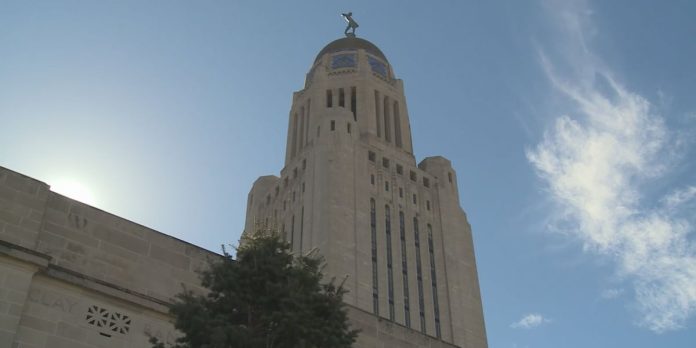LINCOLN, Neb. (WOWT) – As the State of Nebraska moves into a new fiscal year Tuesday, a handful of new tax laws go into effect, along with some state salary increases and policy requirements.
Starting Tuesday, all public and private colleges and universities in Nebraska must report any funding — including contracts, gifts, grants, etc. — received from any “foreign adversaries.”
Nebraska Supreme Court justice salaries also increase to $228,431 annually as of Tuesday. State employee pay raises and added benefits also kick in on Tuesday, per the contract the state negotiated with NAPE.
On Tuesday, in accordance with a law passed last year, the state will begin imposing a 5% tax on gaming machines, unless they’re operated by a fraternal benefit society or veterans organization. Those funds must be used by the Charitable Gaming Division for enforcement as well as maintain its central server.
Also on Tuesday, the state law passed last year limiting how much cities can increase property taxes each year goes into effect and increases the amount of available relief via property tax credits from $750 million to $780 million.
Other tax credit changes going into effect Tuesday include:
- The annual Nebraska Department of Revenue non-refundable tax credit limitation for charitable “pregnancy help” organzations shifts to $500,000. On July 1, 2026, and thereafter, it will increase to $1 million annually.
- The limit for approved tax credits for eligible organizations supporting those with intellectual and developmental disabilities changes to $1 million. That limit is scheduled to increase to $1.5 million in July 2026 and $2 million in the state fiscal years thereafter.
- The cap on state disbursements for the Caregiver Tax Credit will move to $1.5 million and remain in place for two years. In the fiscal years that follow, it’s scheduled to raise to $2.5 million.
Additionally, a couple of big deadlines hit the state Tuesday — but those will be anti-climatic as the requirements, or temporary fixes, have already fallen into place.
Nebraska cities were required to formulate a five-year poverty elimination plan to the state by Tuesday. Lincoln submitted its plan in April. Omaha submitted its plan in May.
The state’s first medical marijuana policy deadline also officially hits Tuesday, which prompted the new Nebraska Medical Cannabis Commission issued its emergency rules last week.
NOT IN EFFECT YET
The portion of the education package passed year that allows non-public school students to participate in extracurricular activities in the district closest to their residence will go into effect on Sept. 6. Also in the bill package, the school district funding database must be in place by Jan. 1, 2026.
The new law protecting the power grid from crypocurrency mining operations is set to go into effect Oct. 1.
The Parental Rights in Social Media Act will take effect July 1, 2026.
—
Get a first alert to breaking news delivered to your inbox. Sign up for First Alert 6 email alerts.
Copyright 2025 WOWT. All rights reserved.
